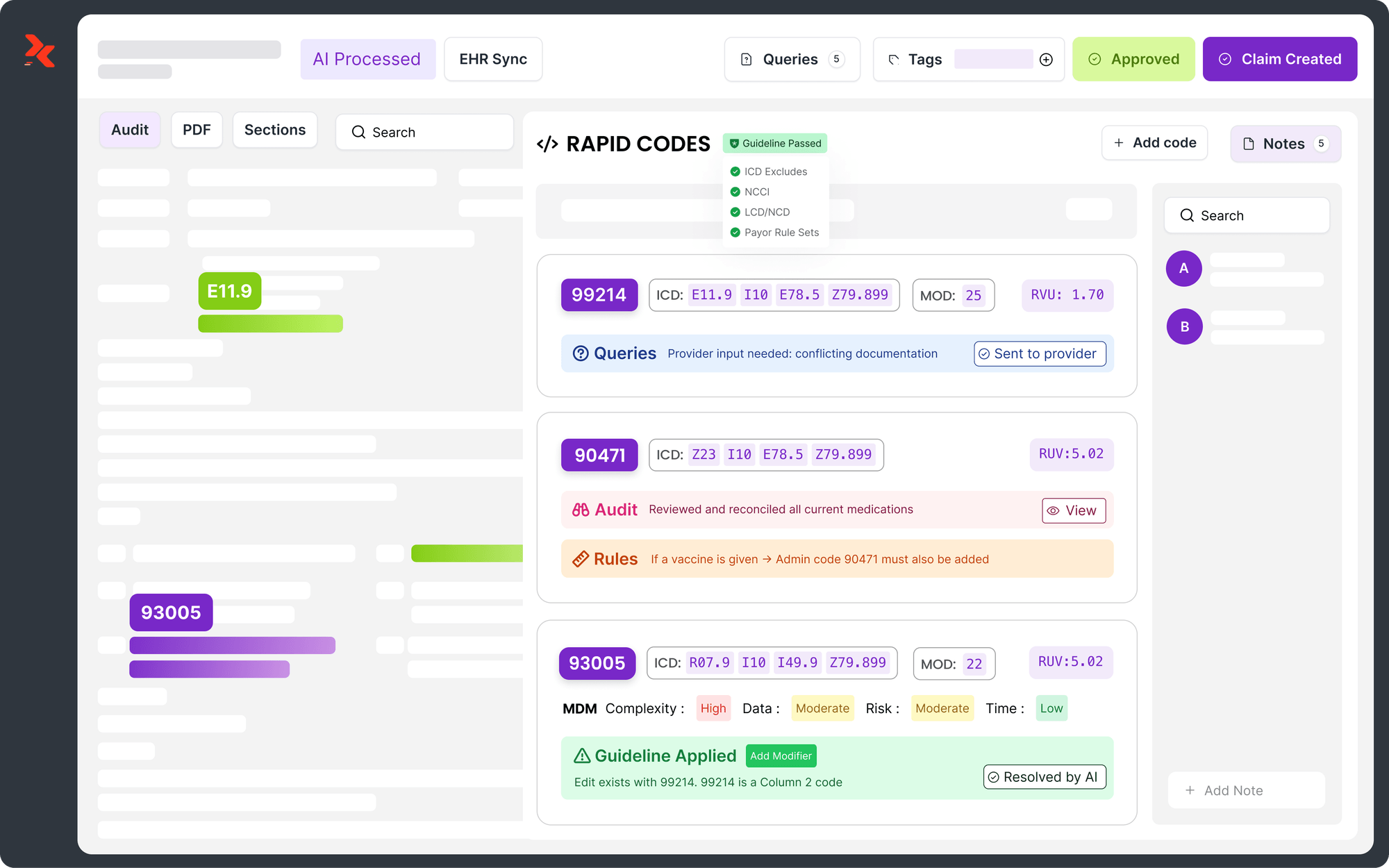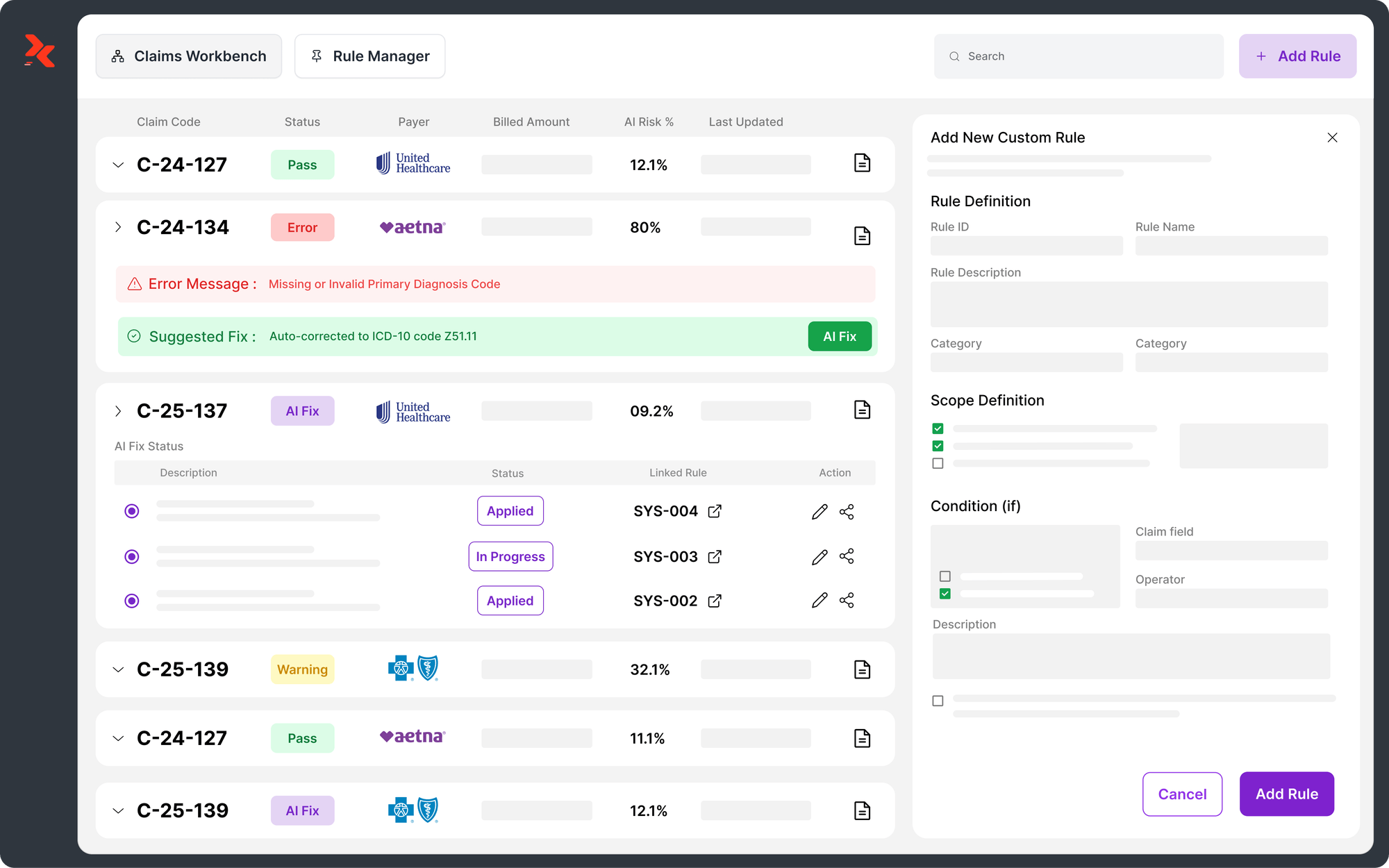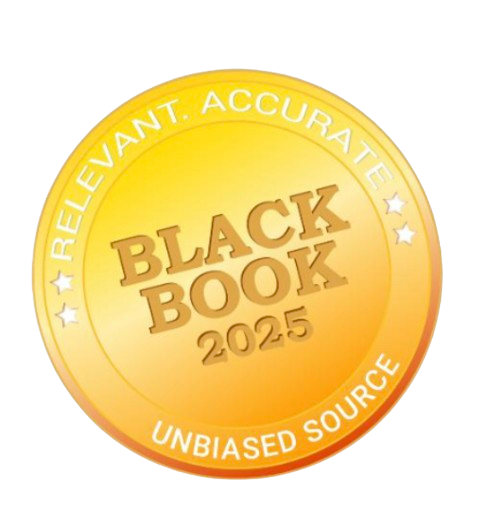From Chaos to Clarity: How AI in Medical Coding Enhances Accuracy

From Chaos to Clarity: How AI in Medical Coding Enhances Accuracy
In an era where a single coding error can cost healthcare providers millions in denied claims, the high-stakes world of medical coding stands at a crossroads. As medical coders drown in mountains of clinical documentation- physician notes scrawled between patient visits, complex lab reports, and diagnostic results- a quiet revolution is underway. Artificial intelligence isn't just supplementing this critical process; it's fundamentally transforming it.
While traditional coders manually hunt for billable details in sprawling medical records, AI systems now scan thousands of documents in seconds, catching nuances human eyes might miss. The results? Dramatic reductions in denied claims, compliance violations, and administrative costs—all while medical coders evolve from data processors to strategic analysts.
This article pulls back the curtain on AI's breakthrough role in medical coding and record review, revealing how cutting-edge technology is solving healthcare's most persistent administrative challenge and why providers who resist this shift risk being left behind."
This hook creates urgency, establishes what's at stake, paints a vivid picture of the current challenges, and promises valuable insights in the article that follows.
The Limitations of Traditional Medical Record Review
For years, medical record review has been a labor-intensive and time-consuming task. Medical coders manually analyze each document, extracting relevant details and assigning the appropriate medical codes based on standardized classification systems like ICD-10, CPT, and HCPCS. While this approach has been the foundation of medical coding, it presents several challenges:
- Time-Consuming – Manually reviewing records requires extensive time and effort, slowing down billing and reimbursement cycles.
- Prone to Errors – Even the most skilled coders can make mistakes due to high volumes of records and complex medical terminology.
- Inconsistencies – Different coders may interpret clinical documentation differently, leading to variability in coding.
- Compliance Risks – Inaccurate coding can result in claim denials, financial setbacks, and potential regulatory penalties.
- Resource-Intensive – Managing high workloads demands large teams of coders, increasing operational costs for healthcare facilities.
While traditional methods have supported healthcare institutions for decades, the demand for a faster, more accurate, and efficient approach has never been greater. This is where AI-driven medical coding is transforming the landscape.
How AI in Medical Coding Enhances Accuracy
- Enhanced Accuracy in Medical Coding
AI-powered systems analyze vast medical data with precision, identifying patterns and extracting critical details from physician notes, lab reports, and diagnostic results. This ensures accurate code assignment, reduces human errors, and minimizes claim denials. - Accelerated Processing Time
AI significantly speeds up Accuracy, processing documents in seconds rather than hours or days. This rapid automation streamlines the submission of medical claims, optimizing revenue cycle management (RCM). - Standardized and Consistent Coding
AI eliminates discrepancies caused by human interpretation, ensuring uniformity in medical coding. By standardizing the review process, AI minimizes coding variations and enhances compliance with regulatory standards. - Advanced Compliance and Fraud Detection
AI-driven compliance tools detect anomalies in medical records, identifying potential fraud, waste, and abuse. By recognizing patterns of upcoding, unbundling, and other fraudulent practices, AI helps maintain compliance with HIPAA and CMS regulations. - Reduced Workload for Medical Coders
By automating routine tasks, AI allows medical coders to focus on complex cases that require human expertise. Acting as an intelligent assistant, AI reviews records, flags discrepancies, and suggests accurate codes, significantly easing the coder’s workload. - Seamless Integration with Electronic Health Records (EHRs)
AI integrates directly with EHR systems, extracting and structuring medical data for Accuracy. This reduces manual data entry, enhances workflow efficiency, and streamlines documentation. - Predictive Analytics for Informed Decision-Making
AI leverages historical medical data to predict patient outcomes, identify disease trends, and support clinical decision-making. This proactive approach improves patient care.
AI’s Role in Transforming Healthcare Revenue Cycle Management (RCM)
Medical record review is a critical component of Revenue Cycle Management (RCM), directly influencing reimbursement, claim processing, and compliance. AI-powered solutions are revolutionizing RCM by enhancing efficiency, accuracy, and financial outcomes in the following ways:
- Automated Code Assignment – AI rapidly assigns accurate medical codes, minimizing errors and reducing claim rejections.
- Real-Time Claim Edits – AI detects and corrects coding errors before submission, significantly lowering denial rates.
- Enhanced Denial Management – AI analyzes claim denial patterns and provides actionable insights to prevent future rejections.
- Optimized Revenue Capture – AI ensures accurate reimbursement by preventing both undercoding and over coding, maximizing financial performance.
By integrating AI into RCM, healthcare providers can streamline operations, reduce administrative burdens, and enhance financial sustainability.
The Future of AI in Medical Coding
AI is poised to further revolutionize medical record review through advancements in deep learning, AI-driven audits, and seamless interoperability with healthcare systems. As AI technology evolves, its impact on medical coding, billing, and compliance will become even more essential, driving greater accuracy and efficiency in healthcare operations.
Conclusion
AI is transforming medical coding, enhancing accuracy, efficiency, and compliance while streamlining coding and reducing errors. Compared to traditional manual processes, AI-driven solutions significantly improve revenue cycle management (RCM) and operational workflows. While challenges remain, the advantages of AI adoption far outweigh the drawbacks, making it a game-changer in healthcare.
As AI technology continues to advance, how will your organization harness AI to optimize medical record review?
About RapidClaims.ai
RapidClaims.ai is a cutting-edge AI-driven platform revolutionizing medical coding and medical record review. Designed to enhance accuracy, efficiency, and compliance, RapidClaims.ai empowers healthcare providers, revenue cycle management (RCM) companies, and medical coders with intelligent automation. RapidClaim.ai analyzes clinical documentation, physician notes, lab reports, and diagnostic results to ensure precise medical coding and seamless claim processing.
With a strong focus on reducing errors, minimizing claim denials, and optimizing revenue cycles, RapidClaims.ai automates the medical coding process, significantly reducing the burden on human coders while improving turnaround times. Its AI-powered system enhances compliance with industry regulations such as ICD-10, CPT, HCPCS, HIPAA, and CMS guidelines, ensuring accurate code assignments and mitigating fraud, waste, and abuse risks.
RapidClaims.ai seamlessly integrates with electronic health records (EHRs) and billing systems, making it an indispensable tool for modern healthcare facilities. As a leader in AI-driven medical coding solutions, RapidClaims.ai is transforming how healthcare organizations manage medical records and financial operations.
Discover how RapidClaims.ai can streamline your medical record review process and enhance coding accuracy. Schedule a demo today to experience the future of AI in healthcare.
Rejones Patta
Rejones Patta is a knowledgeable medical coder with 4 years of experience in E/M Outpatient and ED Facility coding, committed to accurate charge capture, compliance adherence, and improved reimbursement efficiency at RapidClaims.
Latest Post
expert insights with our carefully curated weekly updates
Related Post
Top Products

%201.png)








